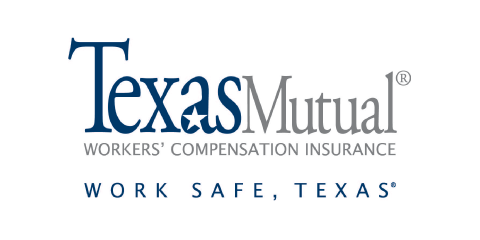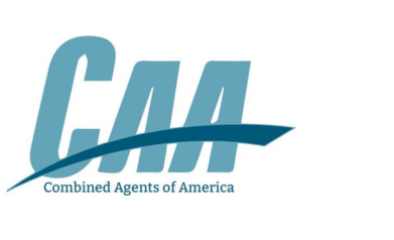Background
The Texas Legislature passed special legislation to provide limited immunity to charitable organizations in an attempt to reduce the liability exposure and insurance costs of these organizations. In addition, the law applies to the directors and officers that manage the organizations, and the employees and volunteers that work for them, in order to encourage volunteer services and maximize the resources devoted to delivering these services. Another law affects the liability of an officer of a nonprofit corporation other than a charitable organization.
The law that applies to charitable organizations defines them as (a) any organization listed as an exempt organization in section 501(c)(3) or 501 (c)(4) of the federal income tax statute, if it is a nonprofit corporation, foundation, community chest, or fund organized and operated exclusively for charitable, religious, prevention of cruelty to children or animals, youth sports and youth recreational or educational purposes (excluding private primary or secondary schools, alumni associations and related on-campus organizations), and (b) any other bona fide organizations of these types organized and operated exclusively for promotion of social welfare by being primarily engaged in promoting the common good and general welfare of the people and the community, provided such organization (1) is organized and operated exclusively for one or more of the above purposes; (2) does not engage in activities which in themselves are not in furtherance of the above purposes; (3) does not directly or indirectly participate in any political campaign on behalf of our in opposition to any candidate for public office; (4) dedicates its assets to achieving the stated purpose of the organization; (5) does not allow any part of its net assets on dissolution or the organization to benefit any group, shareholder or individual; and (6) normally receives more than one-third of its support in any year from private or public gifts, grants, contributions of membership fees.
Scope of the Charitable Immunity and Liability Act of 1987
The Act applies the revised definition of "charitable organizations" to three broad categories: volunteer liability, employee liability, and organizational liability: charitable and other nonprofit organizations.
Volunteers
When serving as an officer, director or trustee of a charitable organization, a volunteer is immune from civil liability or any act or omission resulting in death, damage or injury if the volunteer was acting in the course and scope of his duties. A volunteer who is serving as a direct service volunteer of a charitable organization is likewise immune from civil liability if acting in good faith and in the course and scope of his duties. However, a volunteer is liable for death, damage or injury caused by any act or omission arising from the operation or use of any motor-driven equipment, including an airplane, but only to the extent insurance coverage is required by the Texas Motor Vehicle Safety Responsibility Act, and to the extent of any existing insurance coverage applicable to the act or omission.
Employees of Charitable Organizations
In a civil action brought against an employee of a non-hospital charitable organization for damages based on an act or omission by the employee in the course and scope of their employment, the liability of the employee is limited to a maximum amount of $500,000 per person and $1 million per occurrence for bodily injury or death and $100,000 of injury to or destruction of property.
Charitable Organizations
In a civil action brought against a non-hospital charitable organization for damages based on an act or omission by the organization, its employees or its volunteers, the liability of the organization is limited to a maximum amount of $500,000 per person and $1 million per occurrence for bodily injury or death and $100,000 for injury to or destruction of property.
The Texas Nonprofit Corporation Act provides that an officer is not liable to the to the corporation or any other person for an action taken or an omission by the officer, while the officer is acting in his or her official capacity. This immunity does not apply if the officer's conduct was exercised (1) in bad faith, (2) without ordinary care, or (3) in a manner not in the best interest of the corporation based on the officer's reasonable belief.
Watch Out for Loopholes
These laws sound great in theory, but in the real world, there are many loopholes and exceptions. Agents should be very careful when responding to questions regarding the need for insurance by charitable and nonprofit organizations. The limitations and immunities of this law have not been tested in court and a law is always subject to being overturned by the Texas Supreme Court.
In addition, the charitable organization law only limits recovery for bodily injury and property damage. It does not limit other potential claims, such as libel, slander or discrimination. The law does not apply to the duties or liabilities of a board member or an officer to the organization or its members. Nor does the law prohibit plaintiffs from filing suit; these suits still must be defended, and usually at great expense.
The immunities and limits on liability do not apply to an act that is intentional, willfully or wantonly negligent, or done with conscious indifference or reckless disregard for the safety of others. Unfortunately, these points of law will be decided by the jury with help from the plaintiff's attorney. The limits on liability stated in the law do not apply to charitable organizations which do not have liability insurance coverage in effect, with limits of at least $500,000 per person and $1 million per occurrence for bodily injury and $100,000 per occurrence for property damage.
The requirement can be satisfied by purchasing combined single limits of $1 million. This also means that reduction of limits by paid claims charged against the aggregate on current CGL policies could reduce the limit below the cap, creating a continued need to consider umbrella liability policies. The answer to nonprofit and charitable organizations' questions regarding their need for liability insurance and what limits they need is, "Yes, you still need all the liability coverage you can get, as much as you can afford." No one should recommend that a charitable or nonprofit organization change its insurance buying habits because of these laws. Too many problems limit the laws' desired effects on the liability of the organizations and their directors, officers, employees and volunteers.














